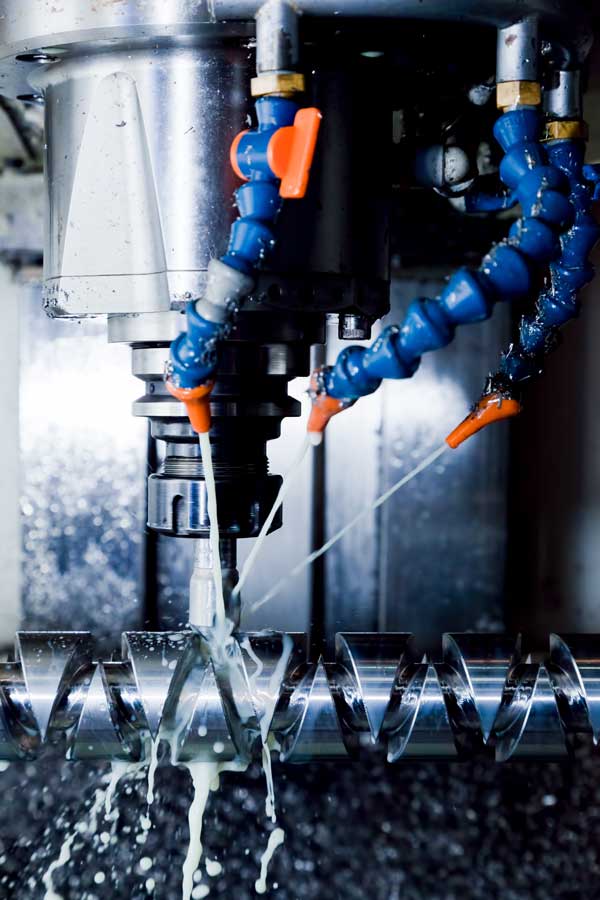Tech Cool 35058 and Tech Cool 35037 Metalworking Fluids
Tech Cool 35058 and Tech Cool 35037 Metalworking Fluids
The Surface Treatment global business unit of the Coatings division of BASF, operating under the Chemetall brand, advances the standards with two new products, Tech Cool 35058 and Tech Cool 35037. These metalworking coolants join the innovative and award-winning Tech Cool line of metalworking fluids for metal fabricators.

Tech Cool 35058 is a unique premium machining fluid developed specifically for applications requiring superior microfinish on ferrous alloys; low- and high-carbon steels, titanium, molybdenum and tough alloys. It is low foaming and specially formulated to run longer in high velocity central systems. The product offers enhanced corrosion protection, contains no chlorine, sulfur, boron or phosphorus compounds and is compatible with ferrous and aluminum alloys. The technology uses a unique blend of additives which delivers extended sump life. Tech Cool 35058 is recommended for use in most medium to heavy duty machining and grinding applications.
Tech Cool 35037 is a distinctive general-purpose machining and grinding fluid developed specifically for applications requiring efficient and economical performance on aluminum and copper alloys. It is low foaming and designed to deliver superior finishes for aluminum drilling and tapping applications. The product offers excellent corrosion protection, extended sump life and contains no sulfur compounds. Its unique lubricity is activated by a chlorinated EP ingredient. It. Tech Cool 35037 is completely free of formaldehyde releasing biocides, and recommended for use in most general-purpose machining and grinding applications.
Both Tech Cool 35058 and 35037 exhibit enhanced hard water tolerance and increased emulsion stability. The in-service cleanliness of these products allows for long-term system life without the formation of heavy, tacky, water insoluble residues.





